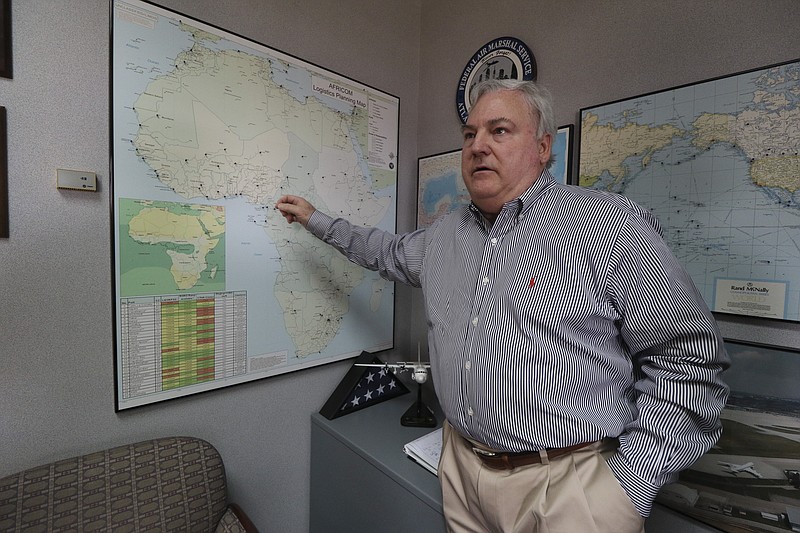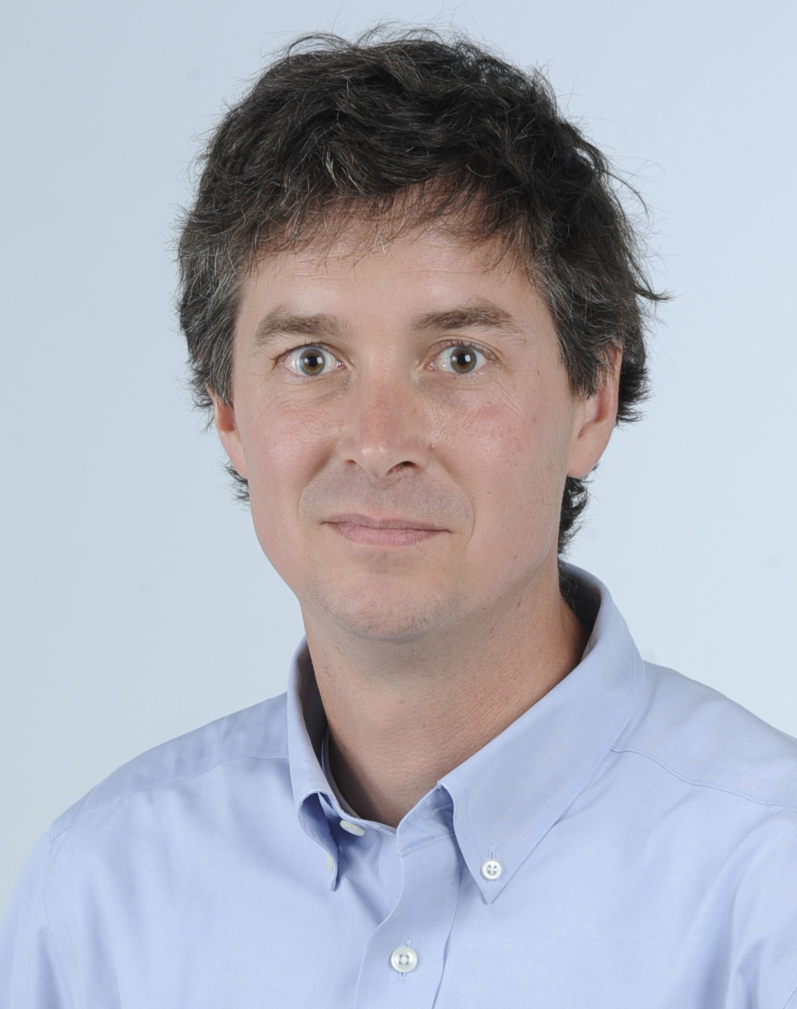Read more
Leave no trace: Chattanooga company on the front lines of Ebola fight Cook: When this plane lands, it's carrying death Gerson: The next epidemic is likely to be an airborne virus
Last week, I wrote about Clay Wardlaw, the Chattanooga man who decontaminates the planes that evacuate Ebola patients from Africa back to America and Europe.
Now, meet Dent Thompson.
He owns the Ebola planes that fly the unfriendly skies.
"We go into the really bad places," he said.
Thompson is COO and vice-president of Phoenix Air, an air transport company that owns, operates and pilots the three Gulfstream jets that evacuate Ebola patients.
"We can handle anything," he said. "The airborne and the blood-borne."
Phoenix is headquartered 80 miles down the road in Cartersville, Ga. Add in Wardlaw, who lives on Lookout Mountain, and our region is home to a pair of rock stars within the global community of infectious disease-fighters.
And that's just one small part of Phoenix Air.
"We go all over the world," Thompson said.
This ain't Delta. Thompson's fleet -- a blend of Learjets and Gulfstreams -- flies in and out of global hot spots rife with infectious disease, military unrest, national elections, scientific inquiry, international politics and, well, a lot of stuff he can't and won't talk about.
"We don't market to the public," he said.
Phoenix flies military contractors in and out of Africa, scientists studying endangered species along Pacific islands, United Nations officials on tour, and doctors sick in some remote Asian village.
A map of the world hangs on the wall behind his desk. For every flight Phoenix takes, Thompson sticks a blue pushpin into that spot of the world. The atlas is scattered, smothered and covered with blue pins, like it has some form of pushpin pox.
"China five times in less than a year," he begins. "We go to Israel all the time."
Phoenix began in the 70s -- two airplanes, six people on the payroll, operating out of a stud-wall basement -- by Thompson's brother.
Now, Phoenix has 200 employees, 40-plus aircraft and offices in five states.
"And Germany and Ghana," said Thompson.
Around 2007, Phoenix entered a contract with the U.S. Centers for Disease Control and Prevention. It was the time of SARS, swine flu and bird flu, and CDC needed an aircraft that could evacuate its doctors and nurses from remote and sick parts of the world.
Phoenix designed the plane -- special quarantine rear cabin, huge bay doors, negative air circulation system -- but never used it.
"By 2011, the system was completed," Thompson said, "but the diseases had gone away."
Then came Ebola.
Thompson was on vacation in North Carolina -- "sitting on the deck, adult beverage in hand," he said -- when the phone rang. It was a top State Department official. Could Phoenix planes evacuate Ebola patients?
Within days, top doctors and government officials met around tables in a Cartersville hangar in an impromptu Ebola conference that would change the world. Thompson showed them his specialized planes.
"I felt like I was sitting in on a world event," he said. "I felt like it was the decision to go get Osama bin Laden."
Days later, they rescued Dr. Kent Brantly, the first Ebola-infected physician evacuated out of Africa.
Then, Phoenix evacuated Nancy Writebol, the second Ebola-infected American flown out of Africa.
Then, Thompson's phone began to ring. And ring. And ring.
"You cannot fathom how many government agencies began to call," he said. "I would spend hours on teleconferences with 30 to 60 agencies I'd never heard of."
So he did the obvious.
"I shut the program down," he said.
He told the State Department -- you deal with the bureaucrats, let me fly the planes. That led to an emergency contract, making Phoenix the sole carrier for Ebola evacuations.
That was more than 40 Ebola trips ago. He uses a trio of Gulfstream III jets, and has a $1 million-plus-project to retrofit another jet to make four. (He's quick to say these evacuations aren't funded by taxpayers. The Brantly-Writebol evacuations cost about $200,000 each. Each trip, unless it involves a government employee, is paid for by the company or nonprofit requesting the evacuation.)
Imagine this curveball: a flock of seagulls flies into the plane's engines during an evacuation. Halfway across the Atlantic, with an infected patient on board, the plane is forced into an emergency landing.
Where does it land?
"We have a portable isolation chambers located on certain islands," he said.
Thompson's pilots also fly training exercises for navy battleships.
"We play the enemy," he said.
His pilots fly 20 feet above the ocean. Spooling off the end of the plane, like tin cans behind newlyweds, is a three-mile line of Kevlar with targets attached at the end.
The plane zooms by the battleship deck; moments later come the targets. Onboard, sailors fire Gatlin gun cannons in a mock exercise.
Do they actually shoot the targets?
"Damn right they shoot them," he said.
Thompson, too, is a straight shooter, with the glimmer and grit of a man who's listened to more intel by his second cup of coffee than most of us do all year.
Yet before we left his office, he brought up a rather ordinary, household topic.
The flu.
"Two years ago, 12,500 Americans died directly as a result," he said. "So far in U.S., two people have died from Ebola. Yet only 40 percent of Americans bother to get a flu shot. Yet they raise hell over Ebola, which has killed only two people."
In other words, sometimes we fear the wrong things.
"Get a flu shot," he said.
Contact David Cook at dcook@timesfreepress.com or 423-757-6329. Follow him on Facebook at DavidCookTFP.

